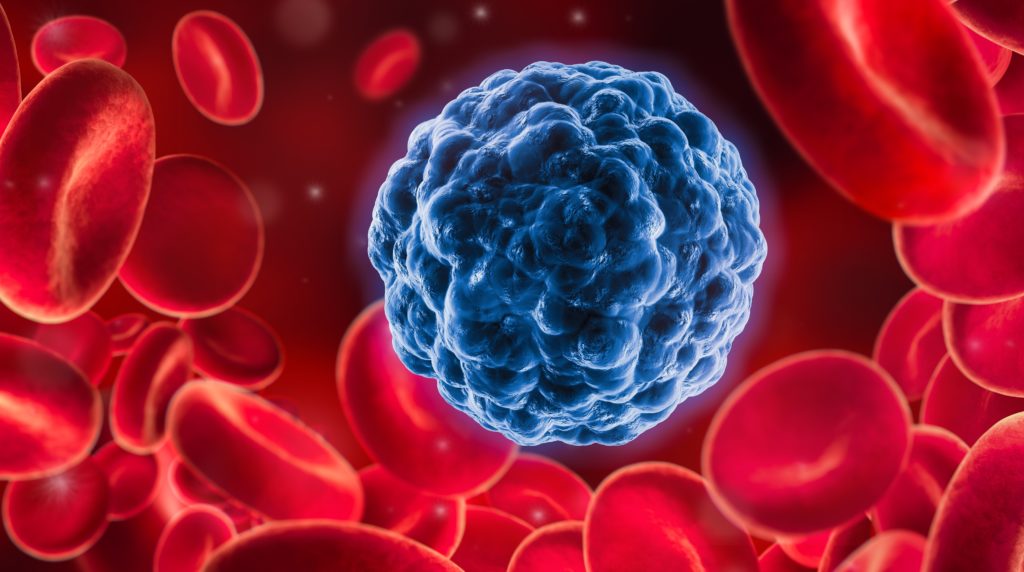Metal-containing chemotherapies, strengthen the immune response against cancer
So far, with a metal-containing chemotherapies have been brought more damage to the immune system. Researchers have now found that metal-chemo therapies can enhance the immune response against cancer and immune therapies.
Number of cancer cases is increasing
More and more people are developing cancer. The world cancer report from the International Agency for research on cancer (IARC), it could come in the world up to the year 2025 annually to 20 million cancer new cases. In this country, the number of new Diagnoses has doubled since 1970, almost. After the diagnosis of cancer, surgery, radiation and/or chemotherapy often follow. For several years, Doctors also rely on immune therapies against cancer. As researchers have have now found, can be reinforced treatment of metal-containing chemotherapies.

Far more damage to the immune system, it was assumed
Because of their strong tumor-killing effect can be used in cancer therapy, often metal-containing chemotherapies.
Because of the cytotoxic (cell-damaging) effects against dividing healthy cells has so far been adopted more of a damage to the immune system.
However, the of the University of Vienna together with the Medical University (MedUni) of Vienna established the research cluster “Translational Cancer Therapy Research”, as is proven in a scientific review article to the contrary.
As it is said in a communication to the universities, metal-chemo therapies enhance the immune response against cancer and immune therapies.
This, among other things, because they make the cancer cells “visible” and anti-inflammatory immune components to eliminate.
The article of researchers appeared in the journal “Chemical Reviews”.
More than 1,300 scientific articles lights
The information, according to the inter-University research cluster “Translational Cancer Therapy Research lights” in his Review, all of the Work (a total of more than 1,300 scientific articles) that deal with the interaction between the immune system and metal-containing chemotherapies.
In addition to publications of the past 30 years, the main author Walter Berger, of the medical University of Vienna and his colleagues also discuss new aspects and create a comprehensive inventory.
“The result clearly shows that the combination of metal-containing chemotherapies and immune therapies is one of the most promising treatment concepts of the present and the future,” said Berger.
Metal-chemotherapy also destroy-inflammatory components of the immune system
The explanation behind this realization: Every cancer is preceded by a long struggle of the immune system with the potential of cancer cells, the immune system eventually loses.
Reason is that it is the Tumor able to be either not generally considered to be foreign or to control the immune cells and to relax.
Metal chemotherapies destroy not only tumor cells, but preferably also the, as it were, “burned-out” or inhibitory components of the immune system.
As a response, the immune system from stem cells will be renewed, making it a quasi-tapers, and the function receives proficient the fight against cancer.
Therefore, the metal-containing chemotherapy also increases the activity of Immune Checkpoint inhibitors.
The reason is that tumor cells emerge from cells in the body. The immune system is trained to spare the body’s own cells, and cannot detect tumor cells is therefore difficult.
Metal-containing chemotherapy kill the tumor cells, the change in the process of disintegration. This otherness makes them for the immune system again visible and vulnerable to attack, a mechanism is referred to as “immunogenic cell death”.
In Parallel, “try” the tumor to evade cells on the Basis of an elevated mutation rate, the effect of the chemotherapeutic agent. Each of the resulting new mutations, but the Potential of a rejuvenated immune system to better recognize.
Thus, chemo seem to be resistant tumour cell clones by the immune system preferentially attacked. (ad)
